Educators
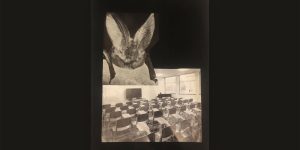
Creating a New Normal: Arts, Design, Humanities and Social Sciences 4 Emergency?
Eveline Wandl-Vogt, Nirmala Menon, Dario Rodrighiero, Elian Carsenat
Panel discussion: As this virus, and maybe further to come, affects the world and our way of living, we are aiming to explore pioneering research and action based art and design. During the time of social distancing and quarantining, it has become evident that even with the principles of science and technology that provide us with access to practical methods for securing our lives, humanities-based principles and skillsets have played a key role in enabling us to evolve. In light of this, we might want to rethink our approach to future living.
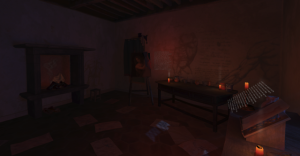
Join our VR guided tours to Leonardo da Vinci's studio
Explore Leonardo da Vinci’s studio, see artefacts from his time that capture some of the doubts we assume he had about his life and work, and learn about the concept of "doubt" during the renaissance.
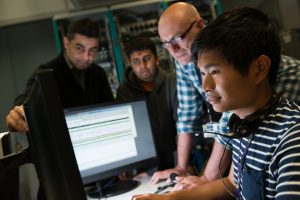
STEAM Innovation and Curriculum
Laura Veart (UK), Tom Cahill-Jones (UK)
Die Konferenz präsentiert inspirierende Beispiele für integrative und interdisziplinäre Bildung und erforscht, wie diese weiter angepasst und in anderen Bildungs- und Kulturkontexten umgesetzt werden könnten.
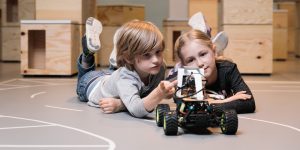
Creative School
Ars Electronica (AT), Dedale (FR), Cap Sciences (FR), Michael Culture Association (BE), STePS (Italy), Radiona Makerspace (HR), Heretic (UK), Chester Beatty Library (IE), Finnish Museums Association (FI).
In 2020 a generation of Europeans born during the dawn of social networking graduated into an era of social distancing and isolation. For many of them, their last days of school took place not in the classroom but on their digital devices. While the circumstances that led to this definitely were not normal, the student experience of inhabiting and interacting in the digital space was.
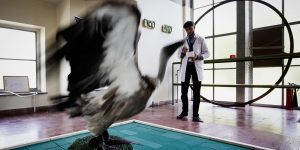
Earth Water Sky Artist Residency - Livestream
Haseeb Ahmed (US)
2020 Earth Water Sky artist in residence Haseeb Ahmed (Sky) will present his film “The Wind Egg” and discuss his body of work, notably on particulates and the particular narratives carried by the wind, which is also the subject of his residency at Science Gallery Venice. The presentation will be followed by a question and answer session open to the public, moderated by residency producer/curator Ariane Koek.
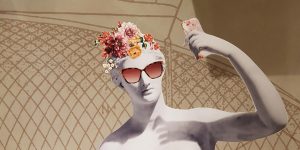
Exponential Mindset: The Skills of an Exponentialist
Niki Ernst, Eveline Wandl-Vogt
A 4-Sessions dive deep into the Exponential Mindset. An interaction series to consider the SDGs from an exponential growth strategies perspective.
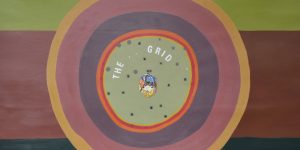
Community Creates Mobility: Participatory Speculative Critical Design beyond dream-making for the City.
Eveline Wandl-Vogt, Niki Ernst, Claudia Falkinger, Peter Zehetbauer, Wolfgang Preisinger, Elisabeth Füssl, Penesta Dika, Aleyda Rocha Sepulveda; lightning talk: Jeffrey Schnapp
Co-Envisioning Mobility Infrastructures - The challenges facing cities around the globe are complex and multidisciplinary by nature. Attempting to solve them in conventional linear ways is insufficient for addressing these manifold human-environment relationships that are at the heart of these challenges. Alternative approaches are necessary.
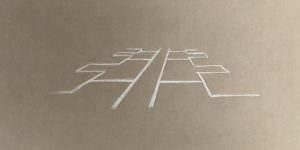
Affordances of spaces
Elena Cologni
Accelerating Knowledge for the SDGs: Life streamed session - The work developed from a two-year long investigation into ‘architectures of difference’, is based on a postcard in sculptor Barbara Hepworth’s collection (circa 1952), in a note she refers to this in terms of the space between people: it’s relational and social aspects. The piece also evolved from considering the punctuations found in our cities’ grounds, and how these contribute to developing a sense of attachment and belonging, which is at the basis of wellbeing (eg. Lived Dialectics, 2016, MuseumsQuartier, Vienna; Seeds of Attachment, 2016/18, New Hall Art Collection, Cambridge).
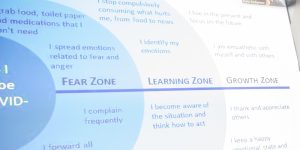
COVID19 Insights: Mapping Diversity and Community
Dario Rodrighiero, Elian Carsenat, Gabriel Carsenat, Eveline Wandl-Vogt
COVID19 is a fire accelerator. We were using the time of the lockdown to deepen our transnational collaboration and think on how we can apply our knowledge and skills to current real world problems related to the pandemics. This visualization based on the recently developed biocultural diversity index and lexical distances. This work is unpublished up to now and unique.
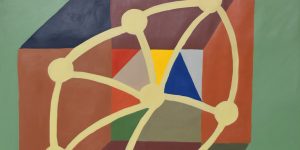
museum of knowledge science
Eveline Wandl-Vogt, Atiq Hashmi, Andreas Brandner, Louise Deininger
Virtual co-design session - Knowledge is at the heart of sustainable development. The achievement of the Sustainable Development Goals requires therefore effective knowledge management. However, knowledge needs to be understood in regional, societal, historic and cultural context. Art and culture are essential to the understanding of knowledge, specifically when knowledge - and its various aspects and processes - is reflected as a subject of art. Beyond reflecting knowledge, art is also a medium of knowledge, like articles or books.
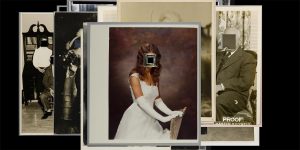
CURATORIAL A(I)GENTS
metaLAB (at) HARVARD
Eight experiments in the computational curation of collections - Curatorial A(i)gents consists in eight machine-learning-based experiments in and around museum collections and data sets developed by members and affiliates of metaLAB (at) Harvard, an idea foundry, knowledge-design lab, and production studio experimenting in the networked arts and humanities.
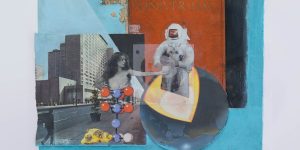
Algorithm Inventarium: methoda-thon
Matthew Battles, Max Haarich, Aleyda Rocha Sepulveda, Eveline Wandl-Vogt
Towards Inclusive, Sustainable Futures - The experimental "methodathon" is part of a series of “algorithm inventarium sprints” related to the project Algorithm Inventarium (AI+): diverse co-creation interventions combining action research approaches for accelerating the collaborative auditing of algorithms (e.g. by applying gamification techniques for data awareness, or auditing through interfaces). The aim of this session in connection with the ars electronica festival community is to identify, co-create and/or discuss specific methods, protocols and experiments for participatory research in the spirit of citizen science and community-based research in Vienna.
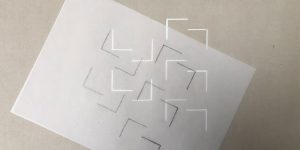
Algorithm Inventarium: The Greater Good Ethics Canvas
Eveline Wandl-Vogt, Henry Dobson, Max Haarich
Towards Responsible, Humane Technologies - In this interaction we are introducing the “Greater Good Ethics Canvas” to be used for the development of Humanity Centered Technology.

STARTS Exhibition
Kepler's Garden am Campus der JKU
STARTS ist eine Plattform mit dem Ziel, Technologie und künstlerische Praxis enger zu verknüpfen.
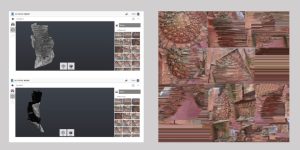
Co\\aborative Conc(re)te
Gareth Proskourine-Barnett (GB), Mike Dring (GB), Alessandro Columbano (IT)
Co\\aborative Conc(re)te is an ongoing conversation between the artist collective, C100, and the cityof Birmingham using architecture to examine notions of progress, change, dis-location, and discovering the lost, forgotten and misplaced works reflecting a landscape of continual synthetic flux. When a building is demolished, it becomes a ghost. Its image haunts us, reminding us of a future that never came to be. But what if previous versions of the city remain in the digital realm. Our events explore what happens when a building that no longer occupies physical space lives on within digital networks - when it ceases to exist the physical matter its occupation of virtual territories take on an added significance? We (re)construct, (re)imagine and (re)build an idea of the future, for temporary gatherings in galleries or other unexpected venues as we work across sound, digital imagery, printed works, moving images, and structural models. Using adapted archival material and found soundscapes, C100 celebrates a collective vision for the future city, one lost to the bulldozer, the other emergent from the dust.
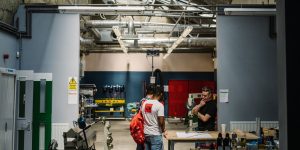
UrbanM
STEAMHouse, Birmingham City University (UK)
Urban M is an Interreg Europe project led by Birmingham City University, its aim is to support nine European Cities to develop their city and regional innovation policies to help local makerspaces thrive.
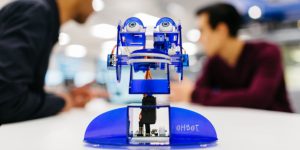
The STEAMhouse Approach
STEAMhouse, Birmingham City University (UK)
STEAMhouse is a centre for innovation, creative thinking, prototyping and business development. STEAMhouse supports entrepreneurs, sole traders, companies and citizens to build their businesses, develop products and services and bring new ideas to life. The centre supports both city and business challenges and takes an interdisciplinary approach to these issues. STEAMhouse is a partnership between Birmingham City University and Eastside Projects and funded by the European Regional Development Fund., It aims to drive innovation and research for major long-term growth across the region.
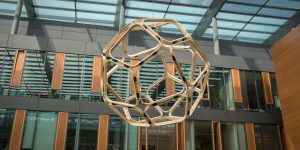
BenDit
Technische Universität Dresden (DE)
BenDit is a structure from bent wood, created at the TU Dresden as a demonstrator within the European Interreg project Adhesive Free Timber Buildings (AFTB). It has a diameter of about 3 meters and is designed to hang in the atrium of the Biology building. BenDit is a model of the deltoidal icositetrahedron. 24 identical kite-like wooden frames are connected along the edges.
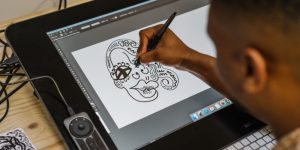
STEAM INC
Ars Electronica (AT), Science Gallery at Trinity College Dublin (IE), Birmingham City University (UK), University of Arts London: Central Saint Martins (UK), Aalto University (FI), Technische Universität Dresden (DE), University of Amsterdam (NE)
Rapid change requires rapid adaptability, and our capacity to adapt is informed by our ability to integrate diverse approaches. To accommodate this, higher education has needed to transcend an historically embedded approach to learning that has seen different types of knowledge segregated across disciplinary silos. Policy ambitions throughout Europe and across the world have recognized that knowledge in science, engineering and mathematics need to be nurtured to engage with rapid advances in technology. However, it has also become increasingly evident that art as a unique and adaptive form of knowledge should also be combined with our approach to STEM education. Art thinking offers a holistic way of understanding complex connections and can act as a translator between different communities of knowledge. By including art, STEAM education ensures that there is an interdisciplinary switchboard operator actively integrating different approaches to solving the same problems we face today.
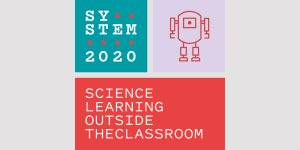
SYSTEM2020 Learner's Perspectives
Discover how learners involvement with out of school science education has allowed them to expand their knowledge and adapt with the changing world around them.


